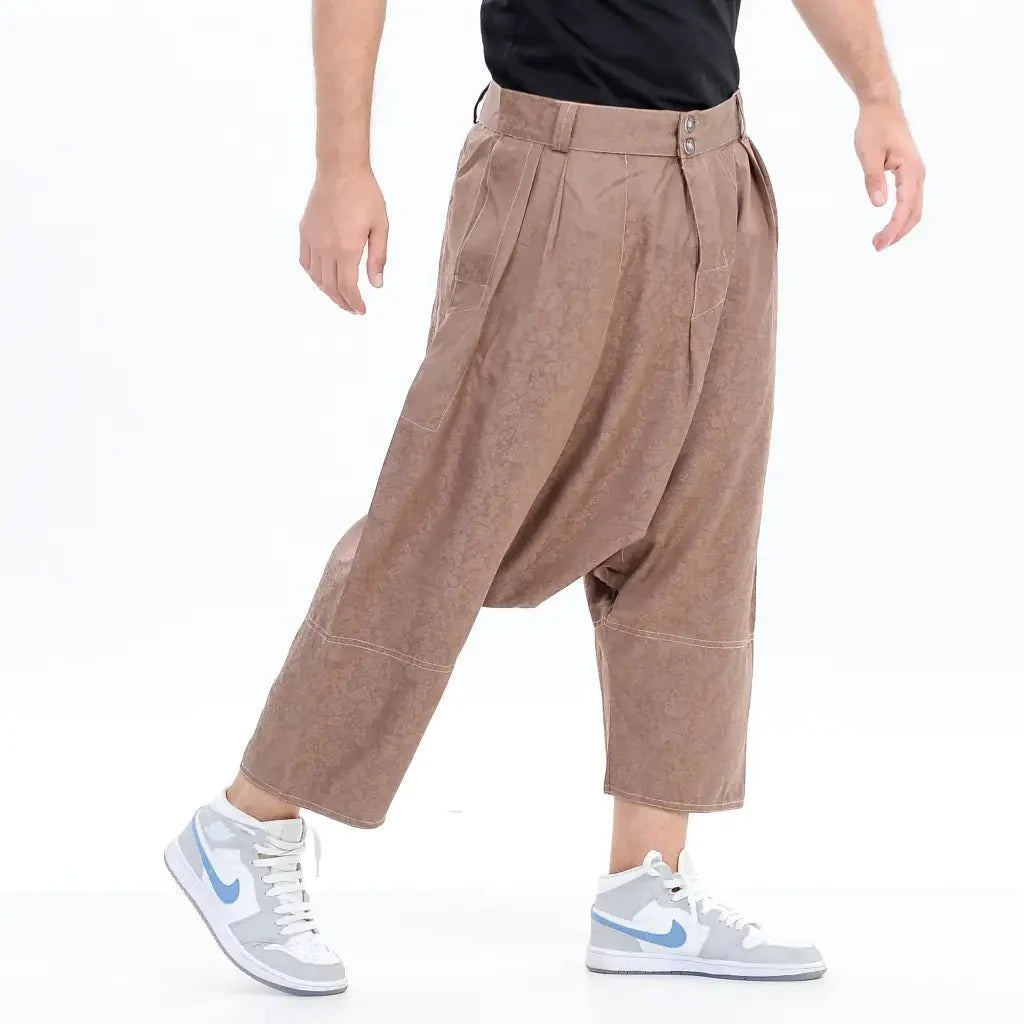Clothes are much like any other common thing whose definition varies depending on language and culture. You may have noticed that in the United Kingdom, people often use the words "trousers" and "pants" interchangeably to refer to garments worn on the lower body. There are key distinctions despite the superficial similarities between these concepts.Learn about the difference between Trousers Vs Pants for a traditional and casual style.
Trousers Vs Pants - A Detailed Comparison
The term "trousers" is the conventional and preferred phrase in the United Kingdom for characterising the lower-body garment worn from the waist to the ankles. These are typically worn in professional situations, such as workplaces, formal gatherings, and special occasions, and are generally linked with formal or semi-formal wear.
Trousers Characteristics
These are a fashionable substitute for trousers in formal situations. They go well with blazers, dress shirts, and ties, and are an important need for every business professional's wardrobe. In addition to a proper fit, these items may have creases, pleats, or cuffs in the front for a neater overall look. Made from durable materials appropriate for dressy occasions, such as wool, tweed, or another fine textile. The clothes known as "trousers" are a mark of elegance and refinement in the United Kingdom, where the name "trousers" is normally reserved for formal events or professional situations.
Pants Characteristics- A Casual Connotation
In contrast to trousers, the term "pants" in the United Kingdom often refers to a more casual kind of pants. It's common to use the term "pants" to mean any article of casual apparel, not only pants. Some people like these because they look and feel more relaxed.
These are supposedly warmer and less formal than the others. Cotton and denim are two examples of the sorts of softer and more breathable textiles often employed in their production. It's perfect for wearing about town, on casual outings, and when engaging in outdoor activities, and it comes in a wide range of styles, from jeans to chinos to cargo pants. They're great for a wide range of day-to-day pursuits since you may pair them with t-shirts, casual shirts, or sweaters.
People in the UK often use the word "pants" to refer to the casual clothing they wear while going out with friends, doing errands, or relaxing. Explore our Loose fit trousers today available at New Arabia.
The Cultural Perspective For Casual Wearing
In the United Kingdom, the differences between trousers and pants reflect cultural and historical considerations. The focus on traditional clothes and customs in the United Kingdom has inspired the usage of "trousers" for more formal events, whereas "pants" is frequently reserved for daily, informal wear.
It is crucial to remember that terminology varies among generations and areas within the United Kingdom. Younger generations, inspired by global fashion trends, may use the term "pants" more casually than older generations, who are more attached to traditional British dress.
Conclusion
The distinction between trousers vs pants in the United Kingdom is more than merely semantic; it represents a more profound cultural sense of apparel and situations. While "trousers" connote formality and elegance, "pants" connote a more relaxed and informal attitude to clothes. Understanding these characteristics can help you navigate the world of British fashion and pick suitable clothes for any event, whether formal or informal. Check out New Arabia if you are looking to buy kaftans, thobes and ouds in UK.



